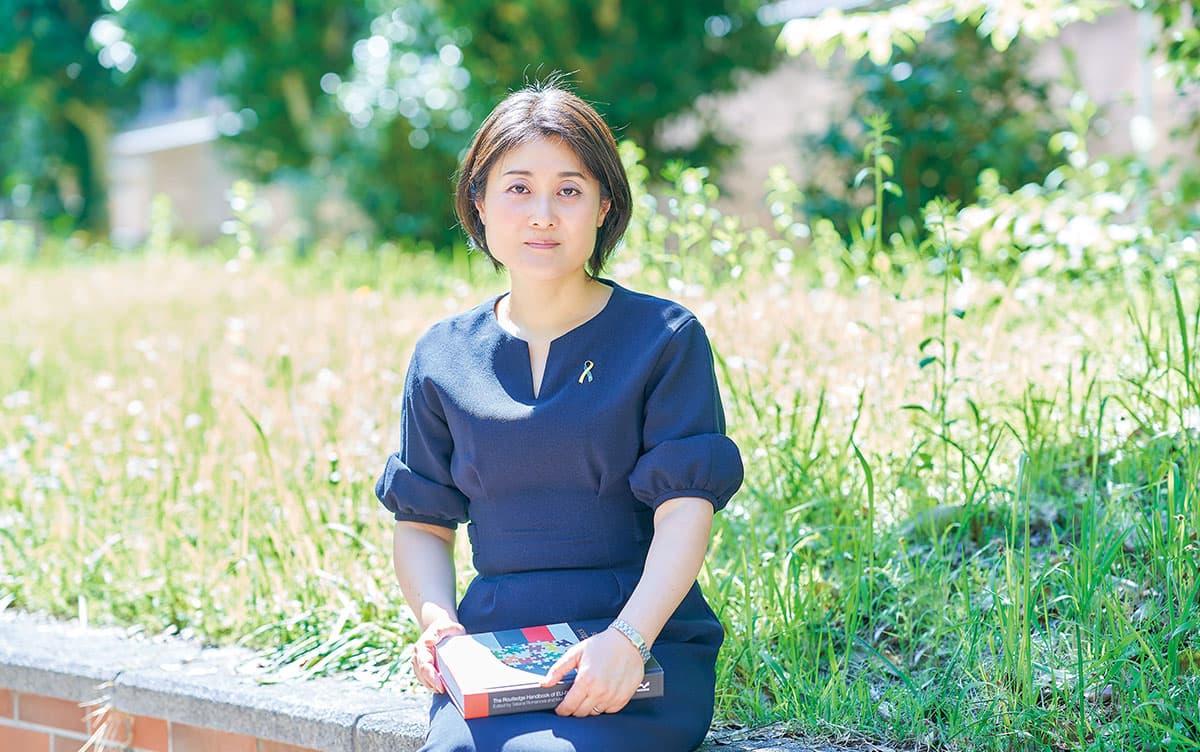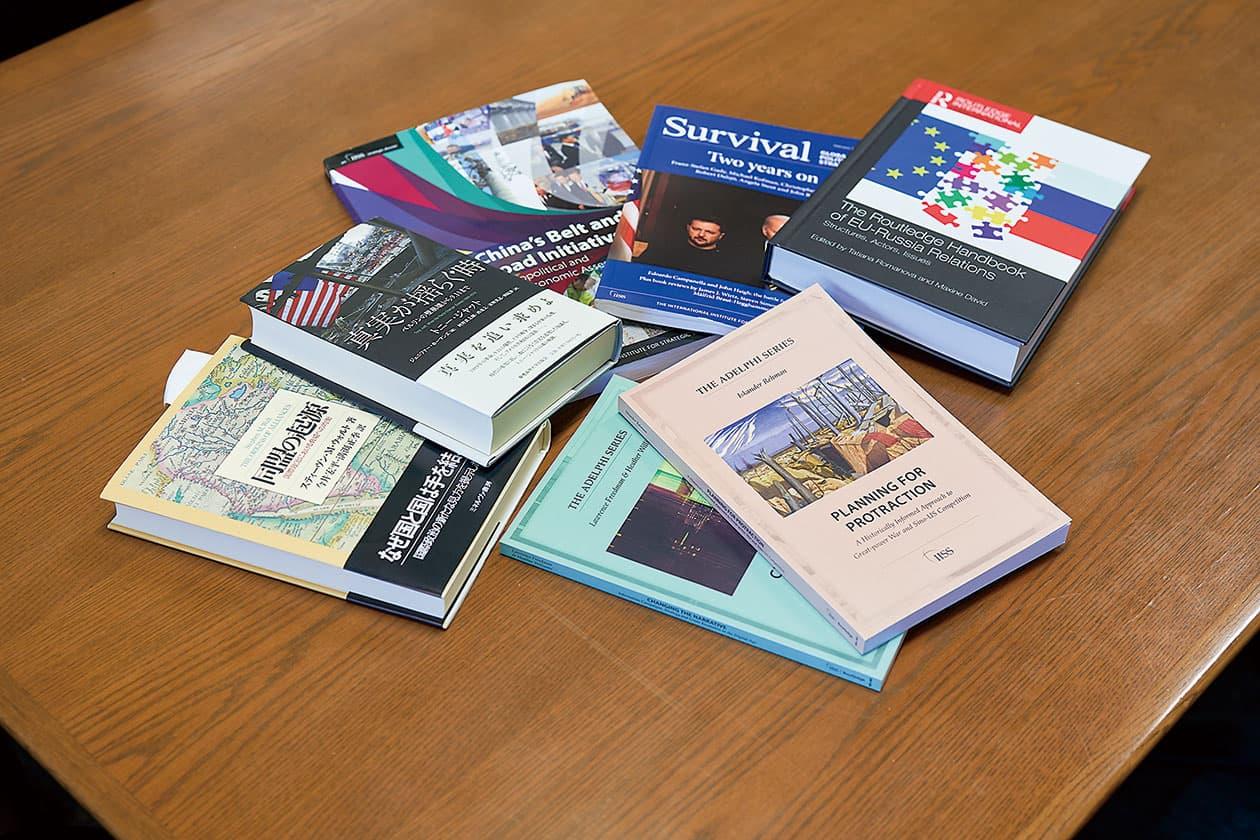TSUKUBA FRONTIER
#044 Navigating Difficult Neighbors: International Relations From the Perspective of the EU
Professor HIGASHINO Atsuko, Institute of Humanities and Social Sciences

Conflicts between country may seemingly affect only those directly involved. However, many factors between multiple countries, such as historical events and the actions of other nations, can exert a significant impact. The study intends to explore these complex and delicate international relations by interpreting various information from the perspective of the formation of the European Union (EU) and its relations with neighboring countries while gathering insights.
Challenges in the Expansion of the European Union

The European Community was established after World War II to prevent war and promote economic integration among European countries. It evolved into the EU in 1993. Initially comprising six Western European countries, the EU now includes 27 member countries.
After the Cold War, the EU aimed to bridge the east-west divide by promoting integration with Central and Eastern European countries that were previously under Soviet influence. Membership in the EU was a long-cherished desire of the countries behind the Iron Curtain. This eastward enlargement led to the transformation of Ukraine into a challenging neighbor of the EU that was struggling with corruption, organized crime, and a tug-of-war between Russia and Europe.
The strategy of the EU is to strengthen economic ties and provide support instead of hastily admitting countries with challenges. In the early 2000s, Ukraine and the EU began to build relations. For Russia, however, this was a violation of its sphere of influence. Efforts to build relations with Russia were unsuccessful, which culminated in the full-scale invasion of Ukraine by Russia in February 2022.
Unpredictable International Relations
Ukraine is also Russia's neighbor. With much in common in terms of ethnicity, language, and culture, Russia is said to regard Ukraine as its brother country. Many Russians view the dissolution of the Soviet Union in 1991 as a historical failure. Putin believes that Ukraine should cease its western alignment and return to Russia's sphere of influence. Although comprehending this viewpoint is difficult for outsiders, it motivates the current actions of Russia.
However, noting that each sovereign nation holds the right to choose its political and societal structures and regional alliances is crucial. European international relations are built on this principle. Many European nations reject the concept of a sphere of influence in the 21st century. However, this view is not relatively correct. Reaching a common understanding of the ideal world order is challenging.
Importance of Information Literacy and Knowledge Sharing
Research in these fields heavily relies on information, particularly Open Source Intelligence, which analyzes publicly available information to derive useful insights. Accurately deciphering information literacy, as well as leveraging knowledge from regional, security, and negotiation studies, among others, is crucial. Experts from various fields must collaborate and share their knowledge.
Ending wars is complex and presents no easy solutions. What ceasefire conditions would be respected, and how can future invasions be prevented? Research cannot immediately halt the bloodshed, but it can help maintain society during wartime and determine the role of the international community. The wide-ranging analysis and recommendations presented in this paper will inform policies across countries.
Coping with the Rapidly Changing International Landscape
My original research focused on European international relations, particularly the EU, with Russia and Ukraine as the key subjects as important EU neighbors. However, the Russian invasion against Ukraine in 2022 shifted my focus to the examination of the war, which prompted a significant change in my research framework and issues.
The rapidly evolving international landscape renders an extensive study challenging but intriguing. The impact of Russia's aggression on European international relations and its implications for relations with China, India, and other countries are compelling topics.
Profile

Professor of Institute of Humanities and Social Sciences and Chair of the Masterʼs Program in International Public Policy at the University of Tsukuba. BA in Law (Keio University), MA in Law (Keio University), and PhD in Politics and International Relations (University of Birmingham, United Kingdom). She has served as an Expert Researcher at the Permanent Mission of Japan to the OECD and Associate Professor at the Faculty of International Studies in Hiroshima City University prior to assuming her current position. Her research interests include international relations and European international politics. Her main areas of interest are EU enlargement, external relations, and international integration theory. She is currently active in disseminating information on Russia's invasion of Ukraine. She is the author of the book The Ukrainian War and Europe (co-author, UP Plus, 2023).
(URL:https://trios.tsukuba.ac.jp/en/researcher/0000000275)
Article by Science Communicator at the Bureau of Public Relations
TSUKUBA FRONTIER (PDF for printing)


